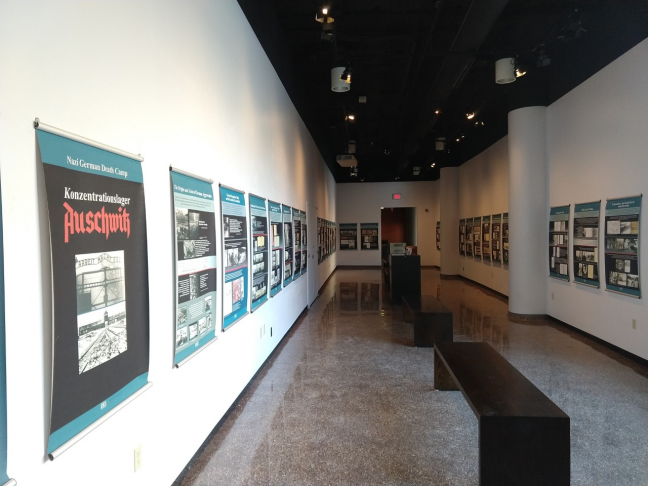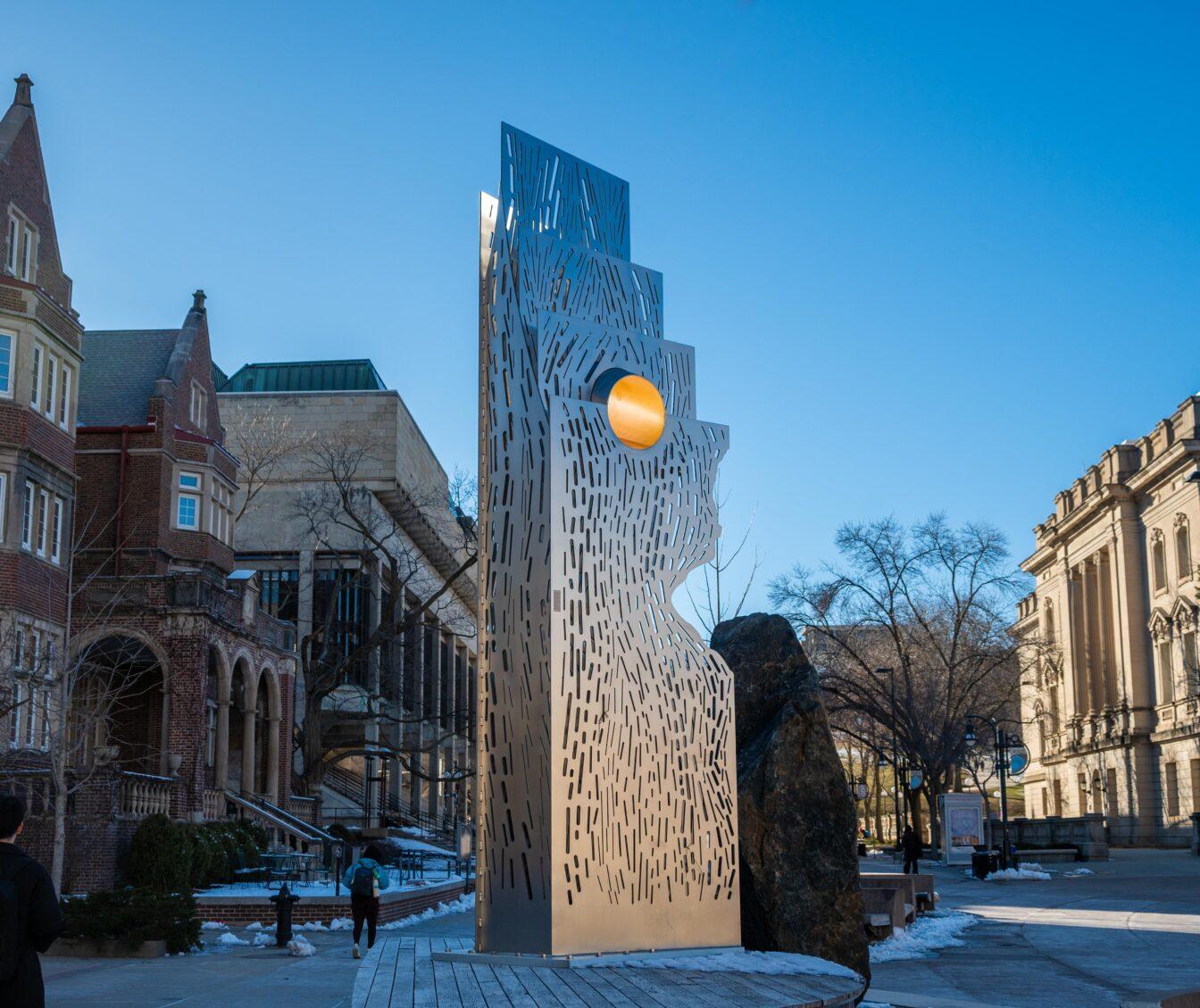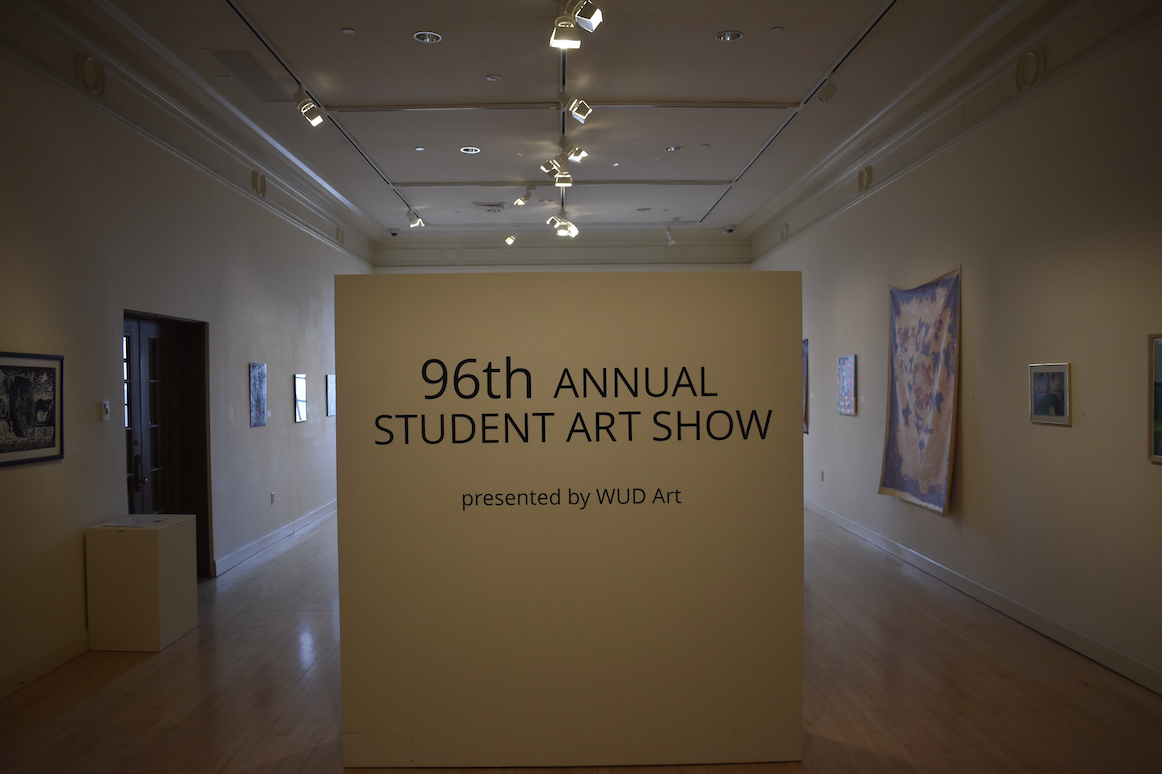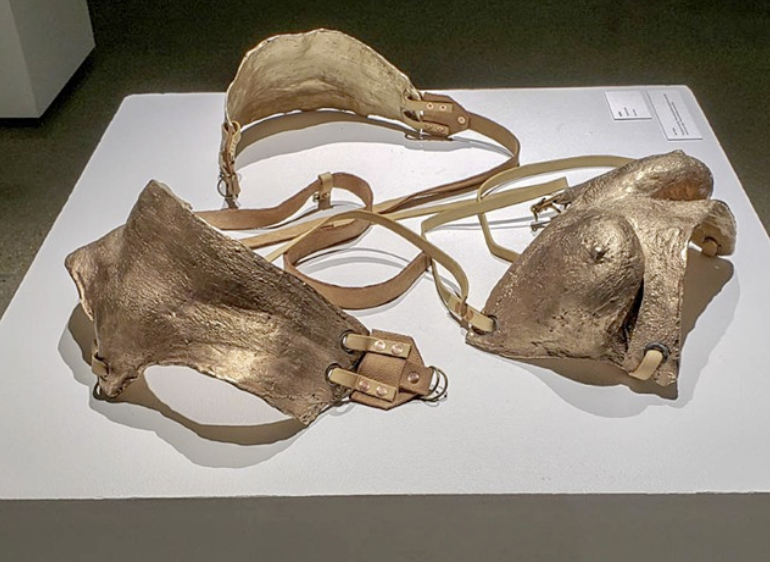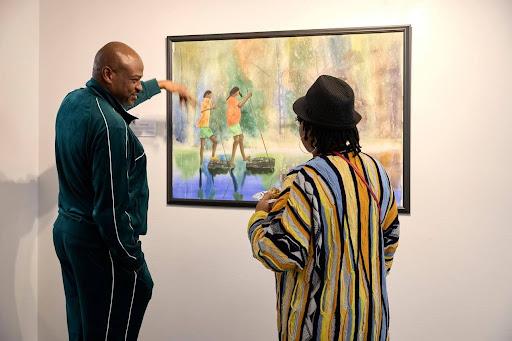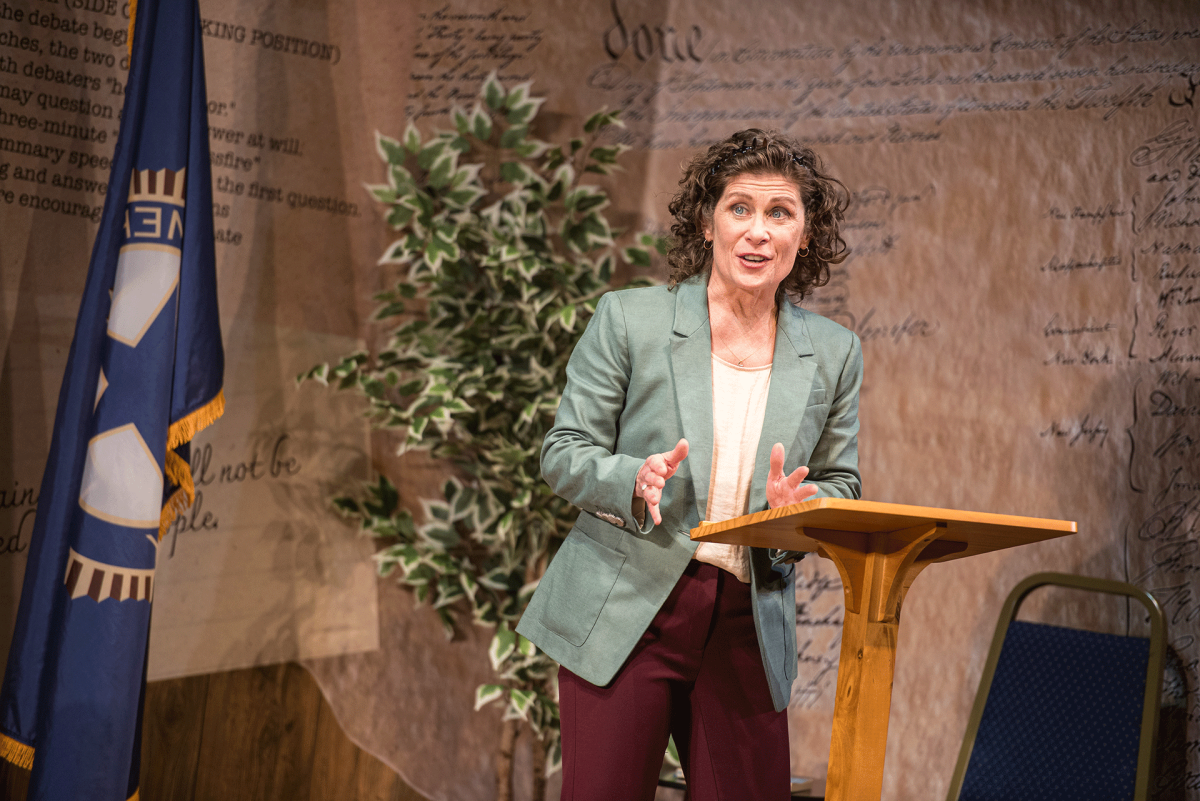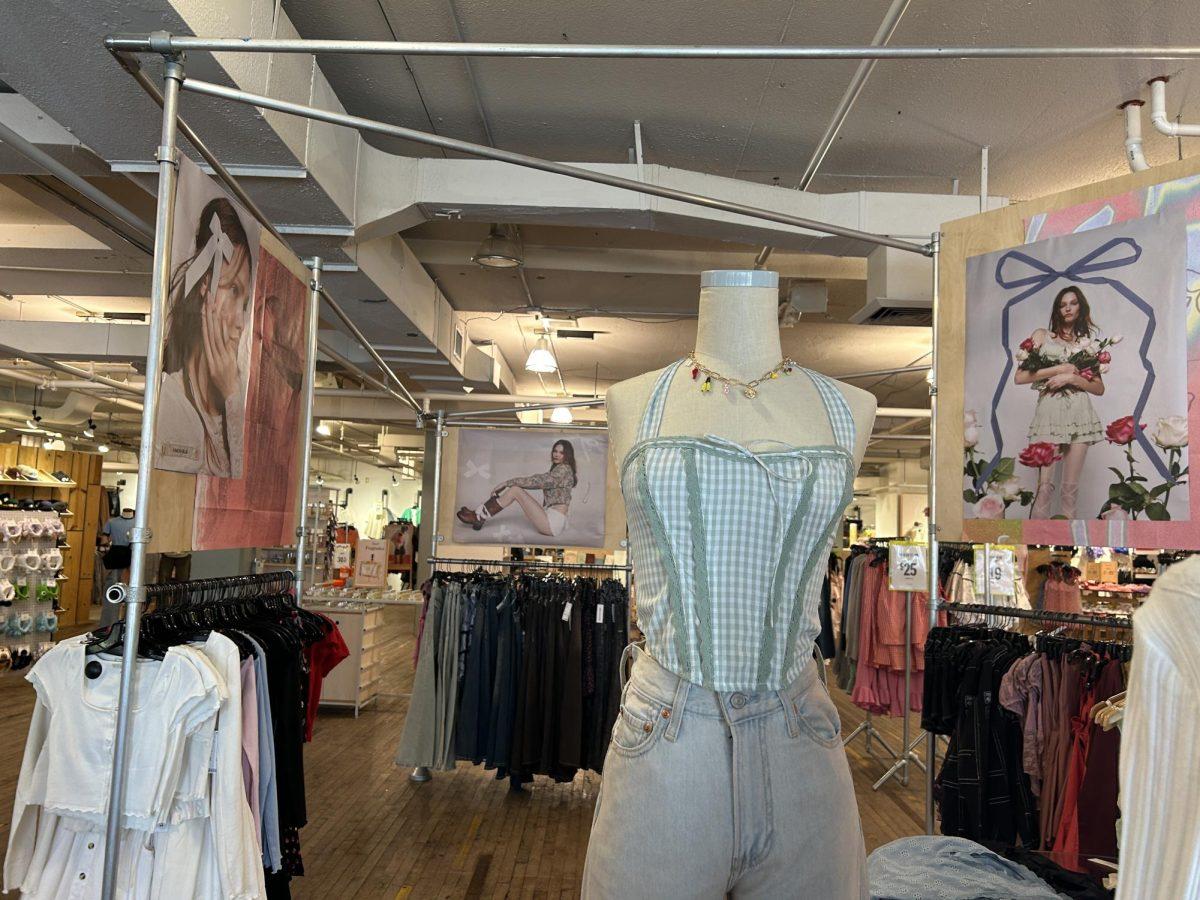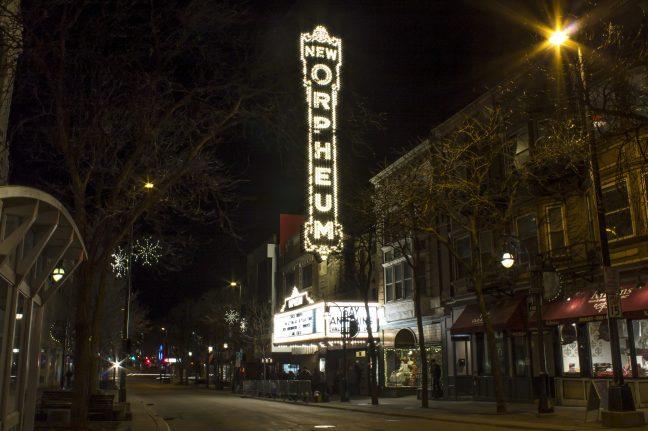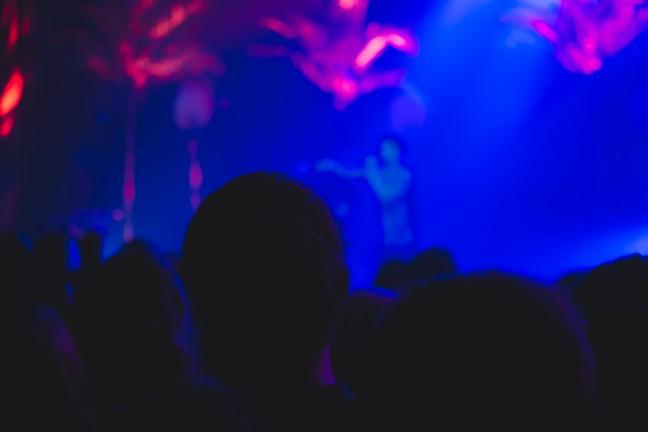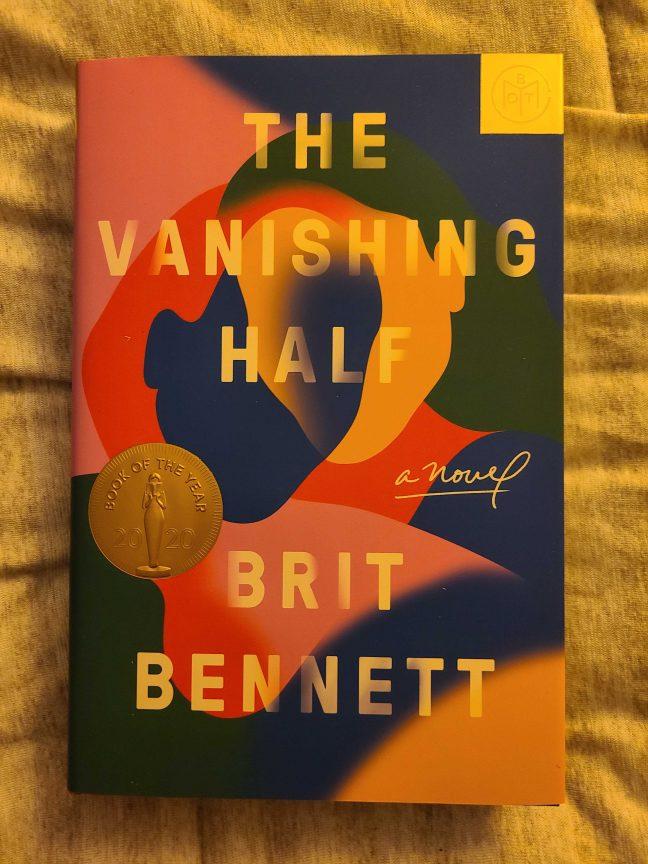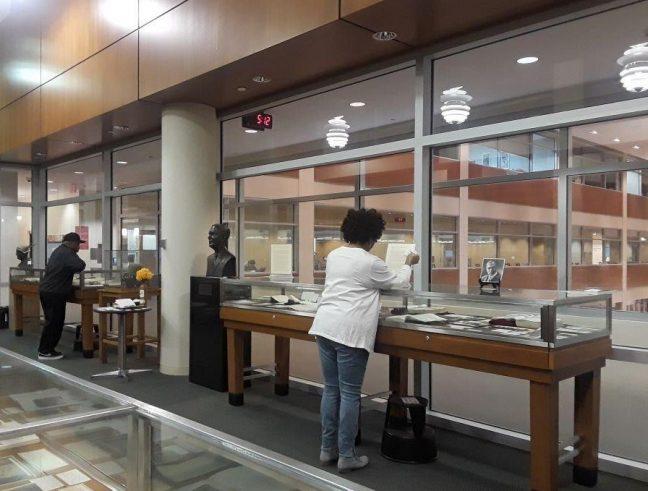With the 75th anniversary of the liberation of Auschwitz approaching next year, a special exhibit created by the Auschwitz-Birkenau Museum in Oświęcim, Poland was displayed last week at the University of Wisconsin in Union South, Gallery 1308.
The official title of the exhibit is: Auschwitz-Birkenau Nazi German Concentration and Extermination Camp
The exhibit contains 31 panels that explain the history and atrocities of the infamous Nazi concentration camp, which resulted in the extermination of between 1.1 and 1.5 million people. Pairing written history with photographs, artwork and historical documents, the exhibit was seen by many individuals and groups in Madison as an opportunity to preserve and honor the legacy of both victims and survivors of Auschwitz.
‘Southern Rites’ exhibit at the Chazen Museum tells powerful story
This is not the first time this exhibit visited Wisconsin. In June this year, it was on display in Baraboo, WI. This was motivated after the city made national headlines in November 2018 for a prom photo of in which around 50 Baraboo High School students raised arms in an apparent Nazi salute.
Swift backlash came on social media, including from the Auschwitz-Birkenau Museum itself.
“This is why every single day we work hard to educate,” said one response from the museum’s official Twitter account. “We need to explain the danger of hateful ideology rising.”
The museum then offered the exhibit as an educational resource to the city. Through the Polish American Congress Long Island Division, the 31 panels were displayed in Baraboo at the high school and at city hall.
‘Synthetic Impressions’ exhibit compares social perspectives of graffiti
Irena Fraczek, a member of the Polish Heritage Club of Wisconsin – Madison, visited the exhibit in Baraboo and was immediately moved.
“I examined it again and again and again,” she said.
The power of the exhibit’s message and its accurateness motivated her to ask the Polish Heritage Club to bring the exhibit to Madison.
The exhibit was presented through a collaboration between the club and a multitude of organizations in Madison. It includes the UW Department of German, Nordic and Slavic, the UW Polish Student Association, the Art Committee of the Wisconsin Union Directorate, and the UW Center for Jewish Studies.
Nov. 11-16, the panels hung in the silent atmosphere of Gallery 1308. Each panel covers a different topic on the gruesome history of Auschwitz, ranging from how it was used as an instrument of terror against Polish civilians, to a source of prisoner slave labor to a facility of mass murder against Jews living in Europe.
“The importance of this exhibit is that it talks about all the victims, about Gypsies, Poles and Soviet POWs” Fraczek said. “If you go through this exhibit, it really tells you everything about the camp.”
Distinguished lecturer discusses Ho-Chunk land UW was built on
Along with written history and photocopies of historical documents, the panels also contain copies of artwork made by Auschwitz prisoners both during and after their imprisonment.
These haunting images range from full color illustrations to bare-bone images. On the panel “Terror and the Punishment System,” Jan Baraś-Komski’s painting “The Sadist,” created after freedom from Auschwitz, depicts an SS Officer beating a prisoner.
Wlodzimierz Siwierski’s pencil sketch “Soup,” made in Auschwitz, is paired with the panel “Hunger,” about the abysmal living conditions in the camp.
Visitors were struck with somber remembrance as they viewed the panels. Most remained silent through the entire experience. A guest book in the center of the gallery allowed visitors to record their thoughts. Most called for a continued preservation of the history of Auschwitz and the Holocaust in hopes to prevent a similar horror from happening again.
Fraczek explained this is not the first or last time the Polish Heritage Club has used art to remember the history of Auschwitz. They previously brought the exhibit “Forbidden Art,” containing artifacts created in various Nazi German concentration camps, to Madison.
She also hopes in the future to show a film about three women in the Żegota group, an underground Polish resistance organization that aided Jews during the Holocaust.
Improving UW culture can only be solved by confronting uncomfortable past
In complement with the exhibit, Professor Rachel Brenner of the UW Center for Jewish Studies presented a lecture at Union South on Friday Nov. 15 titled “Love Your Neighbor: Reconsideration of the Gospels at the Time of the Holocaust.”
She spoke about the dissonant beliefs some Poles had during the event. She read documents from the time period that were simultaneously antisemitic yet denounced the actions of the Nazis.
“[There is] a valuable lesson on the various shades of altruism in the face of atrocity,” Brenner said. “I think it’s a really appropriate exhibit because it summarizes in a comprehensive way the incomprehensible.”
Fraczek wishes the exhibit could have stayed longer in Madison, but believes it provided a powerful experience to connect younger generations to the past for the time it was in Union South.
“Some of my distant family was actually hiding the Jews,” she said, speaking of the Holocaust. “I’m a second generation of those who heard these stories directly from their parents, all of this is extremely meaningful to me.”
Speaking of young people today, she said history is getting forgotten.
“This exhibit is most important for youth, because seeing those photographs is incredibly moving and makes you think differently about life.”
The 75th anniversary of the liberation of Auschwitz will be January 27, 2020, which is also International Holocaust Remembrance Day.








